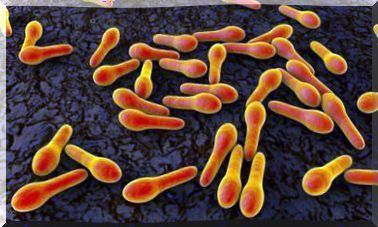What Can Be The Causes Of Weakness In The Body?
In various situations we may feel that we do not have enough strength to execute a movement. We can even execute it, but with difficulty. Do you know the causes of weakness in the body? We will mention them below.

It is common for many people to feel their muscle strength suddenly decrease. This can be a very scary symptom, as the causes of weakness in the body are unknown. However, it is not always a matter of alarm. Read on and find out why.
First of all, it is important to clarify two very similar concepts: fatigue and weakness. The first refers to a subjective feeling of lack of energy. While, on the other hand, weakness is the loss or decrease of muscle strength.
Most common causes of weakness in the body
Muscle weakness is a fairly common symptom. In fact, it can appear under a myriad of circumstances, such as after intense exercise. In addition, many overweight people report it, which is to be expected due to a sedentary lifestyle.
On the other hand, various physiological states can cause a decrease in muscle strength. In this sense, pregnancy and aging are the cause of the problem.
However, weakness in the body should be an alarm sign when there are no apparent causes that originate it. In this way, if it occurs suddenly, prolonged for weeks or in a specific area of the body, health personnel should be contacted.
If there is no apparent cause, muscle weakness can be an indication of a much more serious pathology that should be treated as soon as possible. Among the various diseases that can cause this symptom are the following:
- Anemia.
- Cancer.
- Cerebral vascular events (CVD).
- Acute or chronic infections: tuberculosis, poliomyelitis, dengue, diphtheria.
- Poisonings
- Myasthenia gravis.

Neurological and muscular diseases
Almost all neurological diseases can cause muscle weakness, according to what various investigations report. This is because the communication between the central nervous system and the muscles is totally or partially interrupted.
Something similar happens with muscle diseases. If the fibers are affected, the muscle will not be able to contract properly. Therefore, the desired movement will not be executed normally.
One of the most common neurological pathologies that cause muscle weakness is cerebral vascular events (CVD). These generate direct damage to the brain that manifests itself through various systemic symptoms; among them, muscle weakness.
Other of the most common causes of weakness in the body of neurological or muscular origin are the following:
- Guillian Barré syndrome.
- Myasthenia gravis.
- Spinal hemorrhages.
- Lambert-Eaton syndrome.
- Rhabdomyolysis
- Multiple sclerosis.
- Parkinson’s disease.
Poisoning and medications
Another common cause of generalized muscle weakness is intoxication with various substances. Their mechanism of action is similar to that of some muscular pathologies. In this way, the correct contraction of the muscle fibers does not occur.
Even the prolonged consumption of various drugs can generate weakness in the body due to an allergic process. Thus, among the substances that can cause muscle exhaustion are the following:
- Botulinum toxin.
- Arsenic.
- Oral steroids.
- Some antibiotics: ciprofloxacin and penicillin
- Statins
- Anti-inflammatory pain relievers: such as naproxen and diclofenac.
- Chemotherapy substances.
Cardiovascular, metabolic and endocrine diseases
The direct cause why some cardiovascular and metabolic diseases can generate muscle weakness is the absence of blood and nutrients in the muscle. This type of pathology generates an imbalance between the supply and demand of the tissue. Therefore, the necessary nutrients will not be available to carry out the contraction.
Also, many endocrine diseases can cause neuropathy when left untreated. Studies have shown that, although thyroid disease is the most common, the neuropathy associated with it is rare. In this way, the weakness can be caused by diabetes or hyperparathyroidism.

Other causes
One of the most common causes of this symptom is anemia. As there are not enough red blood cells in the bloodstream, the muscles do not have an adequate supply of oxygen. Therefore, they do not execute the movements normally.
On the other hand, infectious diseases such as dengue, polio or tuberculosis can cause weakness in the body. In addition, the inflammatory ones that affect the muscle as well.
Finally, another of the frequent causes of weakness in the body is cancer. In fact, this symptom is part of the characteristic triad of the disease, which also includes fever of unknown origin and night sweats.
The causes of weakness in the body are very varied
As you can see, there are many different pathologies that can cause weakness in the body. So it is safe to say that it is a fairly nonspecific symptom. However, it should not be taken lightly, as it is sometimes indicative of a serious illness.
Therefore, if you have this symptom and cannot find a direct cause of it, it is best to consult your doctor. In this way you can treat the disease in a timely manner and prevent long-term sequelae.









